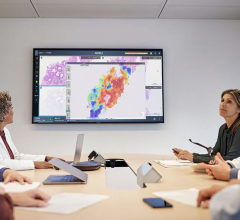February 4, 2010 - To improve the safety and quality of cancer treatment, and reduce the chances of medical errors, the American Society for Radiation Oncology has committed to a six-point patient protection plan, reported ASTRO Board Chairman Tim R. Williams, M.D.
“ASTRO’s highest priority has always been ensuring patients receive the safest, most effective treatments by providing tools and professional guidance to our members. We have been developing and refining many of these programs for years and they have been making a huge difference in the quality of cancer treatment. By committing to this plan, we are redoubling our efforts in this essential area of our specialty,” Dr. Williams, a practicing radiation oncologist at Boca Raton Community Hospital in Boca Raton, Fla., said. “It is frightening to receive the diagnosis of cancer, and completing treatment successfully should be the primary concern of cancer patients and their families. They need to know that their treatments are as safe as possible, period.”
The plan from the ASTRO Board of Directors comes after a systemic review of the Society’s patient safety and quality assurance projects that began as part of the Board’s winter meeting January 28-31, 2010.
It includes:
1) Working with the Conference of Radiation Control Program Directors (CRCPD) and other stakeholders to create a database for the reporting of linear accelerator- and computed tomography-based medical errors.
2) Launching a significantly enhanced practice accreditation program, and beginning the development of additional accreditation modules specifically addressing new, advanced technologies such as IMRT, SBRT and brachytherapy.
3) Expanding our educational training programs to include specific courses on quality assurance and safety, and adding additional content to other educational programs.
4) Working with patient support organizations to develop tools for cancer patients and caregivers for use in their discussions with their radiation oncologist to help them understand the quality and safety programs at the centers where they are being treated. These tools will include questions to ask their treatment team, such as, “Do you have daily safety checks?” and “What kinds of safeguards do you have to make sure I’m given the right treatment?”
5) Further developing our Integrating the Healthcare Enterprise – Radiation Oncology (IHE-RO) connectivity compliance program to ensure that medical technologies from different manufacturers can safely transfer information to reduce the chance of a medical error.
6) Providing our members’ expertise to policymakers and advocating for new and expanded federal initiatives to help protect patients, including support for immediate passage of the Consistency, Accuracy, Responsibility and Excellence in Medical Imaging and Radiation Therapy (CARE) Act to require national standards for radiation therapy treatment team members; additional resources for the National Institute of Health’s Radiological Physics Center to evaluate the safety of treatments; and funding for a national reporting database.
Dr. Williams acknowledged that recent reports about serious errors in the delivery of radiation therapy were deeply troubling to the Society. “In any area of medicine, and radiation oncology is no exception, even one error is too many. We have been a leader in efforts to improve the culture of radiation safety within our specialty. Any errors, no matter how small, must be reported, understood and used as a tool to further reduce the potential for future errors. ASTRO is committed to leading the way to helping physicians and treatment teams do just that,” Dr. Williams said.
Many of the 11 million cancer survivors alive today have benefited from radiation therapy. While all forms of cancer treatment have some inherent risks, when properly used radiation has been, and will continue to be, an essential part of cancer therapy. In fact, recent technological advances have made it possible to precisely define the targets and eliminate tumors while sparing healthy, normal tissue and minimizing side effects. The radiation treatments given today, whether alone or in combination withchemotherapy and surgery, are safer, more accurate and more effective than treatments that were given just 10 or 20 years ago. More and more patients are winning their battles with cancer and going on to lead healthy and productive lives.
If you are a patient or caregiver concerned about the safety of radiation treatments, talk with your radiation oncologist.
For more information: www.rtanswers.org


 August 09, 2024
August 09, 2024 








